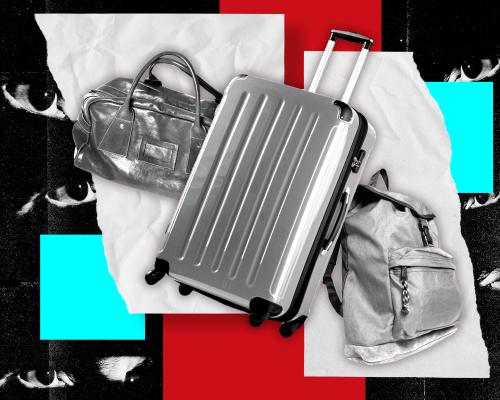
It’s every traveller’s worst nightmare: you arrive at your destination, but your luggage doesn’t. Whether it’s due to a mishandled transfer, or a sneaky suitcase thief in the arrivals hall, lost luggage can quickly turn a holiday into a stressful ordeal. Here’s what to do if yours doesn’t turn up.
Report your luggage as missing
-
All baggage is managed by the airlines from check-in to arrival. So once you are sure your luggage has not arrived, report it as missing at your airline’s desk in the baggage reclaim hall (this is sometimes operated by a third-party ground handler). If there is no one at the desk, call your airline instead.
-
File what’s known as a property irregularity report (PIR) before you leave the airport. This official document is used to report incidents involving damaged, lost or delayed baggage. It serves as a record of the incident and is essential for initiating claims and tracking the status of the baggage.
-
To complete the PIR, you will need to provide: the details on your baggage claim tag (attached to your boarding pass or passport); your flight number and travel itinerary; a detailed description of your luggage; contact details; and a delivery address for where you are staying.
-
The airline will give you a reference number. Keep it safe as you will need this if you end up making a compensation or insurance claim. You can also input the reference number into the WorldTracer website, which provides up-to-date information on the status of lost baggage.
-
Meanwhile, the airline will use the information on the PIR to locate your luggage (hopefully).
Know your rights
-
Your rights to compensation for lost luggage depend on whether you are abroad/on holiday, or arriving home, when your suitcase goes walkabout.
-
If you have arrived at your holiday destination, you will usually be entitled to reimbursement for essential items, such as toiletries, basic clothing, medication and baby items. Some airlines offer a daily allowance for each day that your luggage is delayed, while others will reimburse you if you provide receipts for items you have bought.
-
You will get less cash from the airline if your luggage is delayed on your return home. This is because airlines presume you have clothes and other essentials available to you at home.
-
If your luggage is found, you will be notified by phone or email. The onus is on the airline to return your luggage to you – you shouldn’t have to go back to the airport to collect it.
-
If your bag is still missing after 21 days, it is officially declared lost. You can then file a claim for compensation directly with the airline. You will need to include a list of lost items (with estimated values), proof of purchase if available, receipts for interim expenses, and a copy of your PIR.
-
The maximum compensation under international law (the Montreal Convention) is about £1,000 (the exact amount depends on currency fluctuations).
-
Depending on your cover, your travel insurance may pay out for amounts over this limit if the airline refuses to fully cover the loss.
Reduce the chances of your luggage getting lost
-
Label your luggage inside and out with your name and contact details, and take a quick photo of your bags before checking in. Make sure you remove barcodes and tags from previous flights. Consider tracking devices such as AirTags or Bluetooth trackers for easier tracking in the event that your bag does get lost.
-
Fly direct where possible. Direct flights significantly reduce the risk of lost luggage as they eliminate the potential for baggage transfer issues. If you need a layover, allow ample time for baggage transfers.
-
Get to the luggage carousel as soon as you can. This will reduce the chance of your luggage being stolen or taken by someone else by mistake. Use a unique luggage tag or accessory to make your bag easily identifiable.
-
Pack essentials, vital medication, a change of clothes and high-value items, in your hand luggage, just in case.






